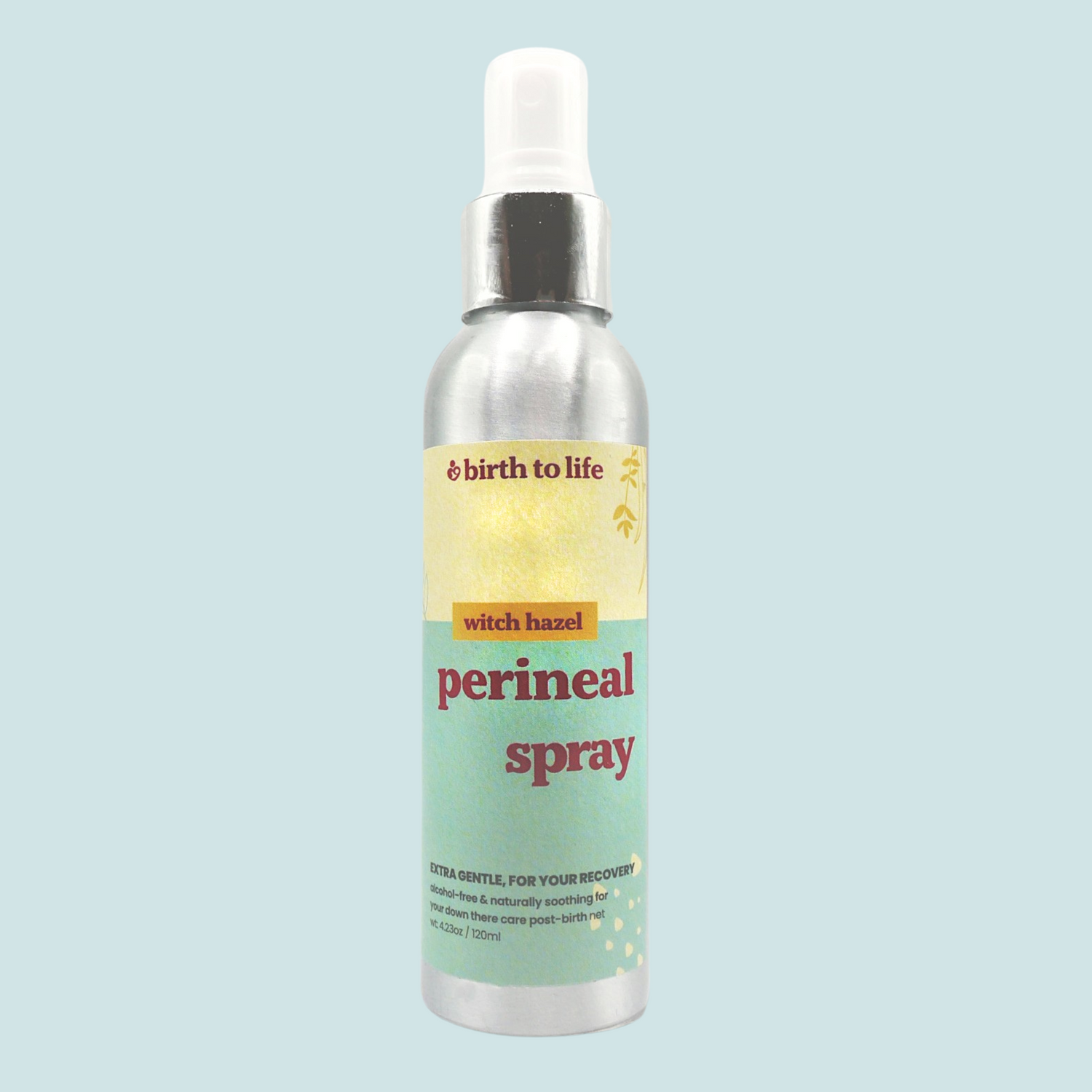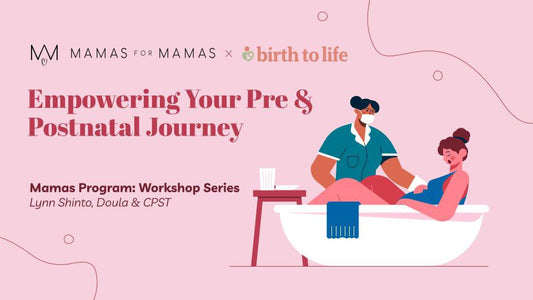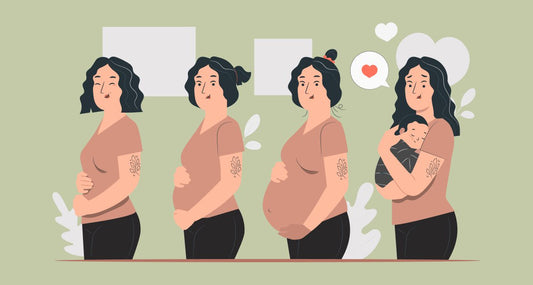A Healthy Postpartum Diet: What to Eat and What to Avoid
Welcoming a new life is a transformative experience, and as you begin this beautiful journey, understanding the importance of nutrition in your postpartum period becomes essential. A healthy postpartum diet not only supports your recovery but also ensures the optimal health of both you and your baby. In this guide, we'll explore what to eat, what to avoid, and how to navigate your nutritional needs during this critical phase. Whether you are dealing with postpartum fatigue, or searching for ways to enhance postpartum recovery, this guide has you covered.

Understanding Postpartum Nutritional Needs
Welcome to the whirlwind world of postpartum nutrition, where nothing is off the table—except those things that shouldn't be there! Understanding postpartum nutritional needs is a crucial part of your journey to recovery and the thriving health of your little one. Much like assembling a jigsaw puzzle while sleep-deprived, this can seem daunting, but I'm here to break it down piece by piece.
First things first: your body has just done something monumental, and it's time for some well-deserved TLC. Proper nutrition postpartum is essential not only for healing but also for maintaining the energy levels required for those 2 a.m. diaper changes. Studies, such as the one from the Dietitians of Canada, emphasize the importance of a balanced diet rich in whole foods as it supports postpartum recovery by replenishing nutrient stores.
Here are some key components to include in your nutritional puzzle:
- Protein Power: Protein is your body's building block and critical for healing tissues post-birth. Think of it as the superhero of nutrients. Include sources like lean meats, tofu, legumes, and dairy. Canadian dietary guidelines recommend breastfeeding mothers consume about 1.2 to 1.5 grams per kg of body weight.
- Iron Intake: After losing blood during childbirth, replenishing iron is vital. Leafy greens, red meat, and eggs should be regular stars on your plate. Fun fact: combining vitamin C-rich foods like citrus fruits with iron sources enhances absorption!
- Omega-3 Fatty Acids: These are essential for cognitive function and reducing inflammation. Salmon, flaxseeds, and walnuts can boost brain and heart health—call them your "thinking-cap" foods.
- Hydration Heroics: While it's not a food, hydration is key. Breastfeeding can increase your need for fluids, so keep water on standby like your favorite sidekick.
While nourishing your body, it’s also important to steer clear of certain items, like excessive caffeine, overly processed foods, and high-mercury fish (sorry, sushi lovers!). For more recovery goods and for a nice little self-plug here :) check out my Birth to Life Postpartum Recovery Collection, where science meets savvy solutions.
As always, consult with a healthcare provider or a registered dietitian like those at Dietitians of Canada for personalized advice. Remember, mama, you’re doing an amazing job—your body is the true VIP here, deserving of all the A-list nutrients it can get!

Foods to Include in Your Postpartum Diet
Ah, the postpartum period! It’s a time when your body is on a mission to heal, recharge, and, if you're breastfeeding, nourish a tiny human. While your baby may have you won over with those cute little toes and sleepy yawns, don’t forget to give your own body some TLC through a balanced postpartum diet. Here are some nutrient-packed foods to consider including in your postpartum menu:
- Leafy Greens: Spinach, kale, and Swiss chard are brimming with vitamin A, vitamin C, iron, and calcium. These nutrients aid in recovery and promote healthy lactation. Plus, they’re versatile enough to sneak into smoothies, soups, or salads. Popeye would approve!
- Oats: Touted as a galactagogue, oats can help boost milk supply while offering fiber to keep your digestion on track. A warm bowl of oatmeal or a handful of overnight oats can be your go-to breakfast solution.
- Fish: Choose fatty fish like salmon or sardines, rich in omega-3 fatty acids, which are essential for mood regulation and reducing postpartum depression symptoms. According to Health Canada, omega-3s also support baby’s brain development.
- Legumes: Beans, lentils, and chickpeas are excellent sources of protein and iron. They’re not just satiating, but also kind to the budget, making them every postpartum mom’s wallet-friendly best friend.
- Eggs: Nature’s multivitamin! Eggs are packed with protein, choline, and essential nutrients that help support your brain and nervous system. Scrambled, poached, or in an omelette, they’re quick and easy.
- Berries: Berries are little powerhouses full of antioxidants, vitamins, and fiber. Snacking on strawberries, blueberries, or raspberries can give a natural energy boost without the sugar crash.
- Nuts & Seeds: Almonds, walnuts, chia seeds, and flaxseeds are packed with protein, healthy fats, and fiber. Besides, adding a sprinkle of seeds to your morning cereal might make you feel like a health guru!
Remember, every body is different, and nutritional needs can vary. Consult with a healthcare provider or a nutritionist to tailor a plan that suits your unique postpartum journey best. Prioritize your wellness, and your body will thank you with strength and vitality!

Foods to Avoid or Limit During Postpartum
The joys of the postpartum period—a time of snuggles, sleepless nights, and eating a leftover piece of cold pizza at 3 a.m.! But let's talk about those foods you might want to think twice about during this special time. It's tempting to indulge in your favorite comfort foods, but some might not be the best for you or your little one, especially if you're breastfeeding.
Here’s a quick guide on what to sideline for now, to help you maintain optimal postpartum nutrition and make those sleepless nights a bit smoother. Remember, your body is still healing, and what you eat can help (or hinder) your recovery!
1. Caffeine Overload: Let's start with the 'elixir of life' for many—caffeine. Moderate caffeine intake is typically safe, but exceeding 300 mg a day can lead to postpartum insomnia. That's about 2-3 cups of regular coffee. Try embracing decaf or herbal teas like chamomile that offer a comforting alternative without the jitters.
2. Alcohol: While a celebratory glass of wine might seem like an excellent idea, it can meddle with your postpartum recovery. Alcohol can pass through breast milk and impact your baby's sleep and development. The Canadian Centre on Substance Use and Addiction advises no level of alcohol consumption is considered safe during breastfeeding. So perhaps save the champagne for your child's first birthday bash!
3. Processed Foods: Who doesn't love the crispy crunch of a chip or the allure of instant noodles? But processed foods often contain high levels of sodium and preservatives, which can exacerbate postpartum symptoms like bloating and fatigue. Instead, try snacking on fresh fruits or homemade energy bites made from Canadian oats.
4. High-Mercury Fish: Seafood is a great source of omega-3 fatty acids, but choose wisely! Fish like swordfish, king mackerel, and some types of tuna have higher mercury levels, which isn't ideal for you or your baby. Opt for lower-mercury options like salmon, trout, or sardines commonly found in Canadian waters, and you'll both get the nutrients you need!
5. Sugary Treats: It's easy to grab a donut when you’re juggling a newborn, but these energy crashes are real! These sweets spike your blood sugar, leading to crashes that contribute to postpartum fatigue. Instead, go for whole-grain snacks or nuts, which provide sustained energy.
So, there you have it! A few things to consider as you navigate your new life as a parent. Remember, it's about balance. You don't need to cut all these foods out cold turkey. Choose options that support your body’s healing process and allow you to enjoy this transformative journey. Here's to resilient new beginnings!

Hydration and Its Role in Postpartum Recovery
Hydration and Its Role in Postpartum Recovery
Hydration might just be your new best friend during the postpartum period, right up there with comfy slippers and those stretchy yoga pants. As you embark on the incredible journey of postpartum recovery, ensuring that you’re adequately hydrating is more critical than ever. In fact, staying hydrated can help tackle a myriad of postpartum woes, from fatigue to mood swings. Let’s dive into how drinking enough of the good stuff—good ol' H2O—can make all the difference in your recovery journey.
First things first, it’s essential to understand why hydration is so crucial during this period. Water is involved in almost every major bodily function. It helps maintain bodily fluids, regulates temperature, aids in digestion, and transports nutrients. For new moms, this translates to ample energy to tackle the day and increased capacity to heal and rejuvenate the body faster. Plus, when you’re breastfeeding, hydration directly impacts your milk production levels—a key detail for breastfeeding care.

According to Health Canada, adult women need about 2.7 liters of fluids a day. But postpartum moms might need more, especially if breastfeeding. And with numerous responsibilities vying for your attention, it’s surprisingly easy to forget to drink enough fluid. One pro-tip: keep a water bottle close at all times. Make it your trusty companion. It’s like your sidekick, without the cape!
Aside from water, you can indulge in hydrating foods to boost your water intake. Juicy fruits like watermelon, or crispy cucumber slices can be not only refreshing but also significantly hydrating. Try creating a snazzy hydration schedule by setting gentle reminders and mix it up with herbal teas, soups, or even infused water (surely a slice of mint and lemon can make any water delightful).
Of course, it wouldn’t hurt to remind ourselves of what to avoid. While a cup of your favorite coffee can be enticing amidst those sleepless nights, remember that caffeine can be a dehydrator. Limiting caffeinated drinks can keep those hydration levels optimal. So, do your best to substitute that second latte with, perhaps, a calming chamomile tea.
Remember, every small sip counts in the path of postpartum recovery. As you balance the new rhythm of life with your little one, ensuring you stay hydrated might just be the gentle lift you need. After all, as someone said, "A little water doesn't hurt anyone... except maybe the Wicked Witch of the West!"

Seeking Postpartum Support and Guidance
In the whirlwind of feeding schedules, diaper changes, and on-demand cuddles, seeking postpartum support is not just helpful—it's essential. More than just a personal cheerleader, postpartum support can significantly impact mental health, smoothen the recovery process, and give new parents the confidence they need. Studies have demonstrated that new mothers receiving comprehensive postpartum care experience less postpartum depression and anxiety, boasting a 40% reduction according to a study published in the Journal of Midwifery & Women's Health.
Enlisting the services of a postpartum doula offers a treasure trove of benefits. Doulas provide emotional support, help with breastfeeding techniques, and even take over baby duty so you can shower unencumbered for perhaps the first time in days. Oh, the luxury! As seasoned doula Rachel Yellin aptly puts it: "The job of a postpartum doula is to mother the mother."
Additionally, seeking community support can make the journey feel less lonely. Local groups and online forums offer valuable resources and empathetic camaraderie. Did you know that postpartum depression affects approximately 23% of new mothers in Canada? But with the help of community support, moms can find solace and understanding from those in the same boat.
Consider creating a network of postpartum allies with family, friends, and professionals like doulas. And hey, dads and partners—remember that seeking support is for you, too! Learning the ropes of parenthood benefits everyone involved, and it's certainly more fun to sing lullabies when you're well-rested.
Feeling like you need a helpful nudge or some soothing guidance to sail through postpartum waters? Check out our specially curated Postpartum Recovery Essentials Kit for a collection of must-haves that support both body and soul. Postpartum doesn't have to be a solo voyage—it's all hands on deck at Birth to Life!

Remember to Nurture Your Body
Nurturing your body with a healthy postpartum diet is akin to sending thank-you cards to your body for all its hard work in bringing new life into the world. It's not just about shedding the pregnancy weight, but about supporting your body's intricate healing processes, enhancing milk production for your little one, and stabilizing those often untamed postpartum hormones.
Remember, a well-rounded diet rich in fruits, vegetables, lean protein, and whole grains works wonders for your overall well-being, reducing postpartum symptoms like fatigue and anxiety. According to the Canadian Family Physician, improving nutrition can significantly improve mental health during the postpartum period. So, take that extra spoonful of kale with a smile and perhaps a dab of maple syrup (because why not?).
As you embark on this new chapter, consider incorporating more supportive tools from our Postpartum Recovery Essentials Kit into your routine. They can provide comfort and aid in your healing. Always remember, each body is unique—what matters most is listening to yours. And if all else fails, our Birth to Life Digital Gift Certificate sure knows how to say, "Thanks for the support!" With love, giggles, and the occasional kale leaf, here's to a thriving postpartum journey!







0 comments